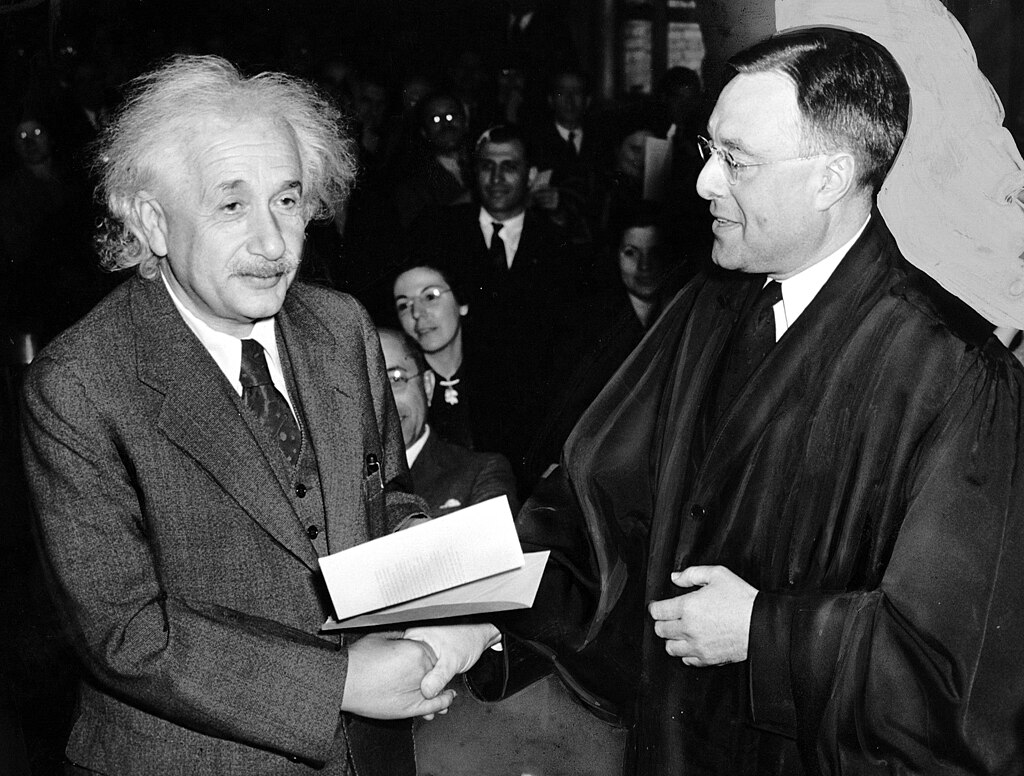Albert Einstein was one of the most renowned geniuses in history, not only for his revolutionary scientific theories but also for his ability to make the most of his time and be highly productive, both scientifically and academically. Below, we’ll learn some of Albert Einstein’s habits that will help us be more productive.
Disciplined and structured routine
Albert Einstein had a disciplined routine and structure, which consisted of following a detailed schedule that started all his activities, from the first hours of the day until before going to sleep, which allowed him to be more productive in his work and make the most of his time.
For example, by planning our week and allocating a specific time to carry out a task consistently (without interruptions or distractions), we can be more productive and efficient, which will allow us to achieve our goals and objectives faster.
Time for walks
Although Einstein devoted a lot of time to his work, he was aware that he needed to take time to disconnect and go for walks. For this reason, he took a long walk every day. This habit helped him find time to clear his mind, generate new ideas, debate with other colleagues, and increase his productivity and creativity.
For example, when we have a problem and we are stressed because we cannot solve it, we can dedicate some time to go to the gym, walk or jog, which can create a space that allows us to clear our minds and generate new ideas/perspectives or simply talk with other people, which will allow us to find solutions to our problems or challenges.
Simplicity
Simplicity was a habit that Albert Einstein adopted and transformed into their lifestyle, as it was a way to avoid distractions, allowing them to focus on the tasks that really seemed most relevant or important.
An example of simplicity in Albert Einstein’s life was his approach to clothing. Einstein was known for maintaining an extremely simple and functional wardrobe: he chose to wear similar or identical outfits every day, thus avoiding the need to spend time or mental energy choosing what to wear. This habit reflected his philosophy of eliminating unnecessary decisions in order to focus on what truly mattered: his ideas and theories.

Dream
Sleep was a very important habit for Albert Einstein’s productivity, as he believed that sleeping well was essential to maintaining a high level of creativity and mental acuity. Einstein dedicated approximately 10 hours to sleep each night, in addition to taking a few naps during the day. In this way, he achieved physical and mental well-being, which helped him to be more productive, patient, and efficient.
For example, when a person has good sleeping habits, they can rest and recover both physically and mentally, which is essential for our brain to function properly, increase its capacity to store and process information, and have more patience, which will help us increase our level of creativity and productivity, allowing us to achieve our goals and objectives.
Time for other recreational activities
Albert Einstein dedicated time to relaxation and music, as he was skilled at playing the violin. Music was fundamental in creating a balance between his work and creativity, as through music, Einstein was able to disconnect from his work, but at the same time, it became an important stimulus for his creativity and the development of new, innovative ideas.
Practicing a hobby or pastime can help us mentally, as a hobby promotes relaxation and reduces stress. Spending time on a pleasurable activity helps us disconnect from daily professional pressures and recharge our batteries.
Many hobbies, such as painting, playing an instrument, or solving puzzles, stimulate the brain differently than routine work. It can also boost self-esteem, as mastering a skill or completing a personal project provides a sense of accomplishment and self-realization.
What do you think about this topic? Do you know any other habits Albert Einstein used to improve productivity?
If you have any questions or queries, you can write them below (comments section).
Image by Al Aumuller via Wikimedia.org under Creative Commons license.